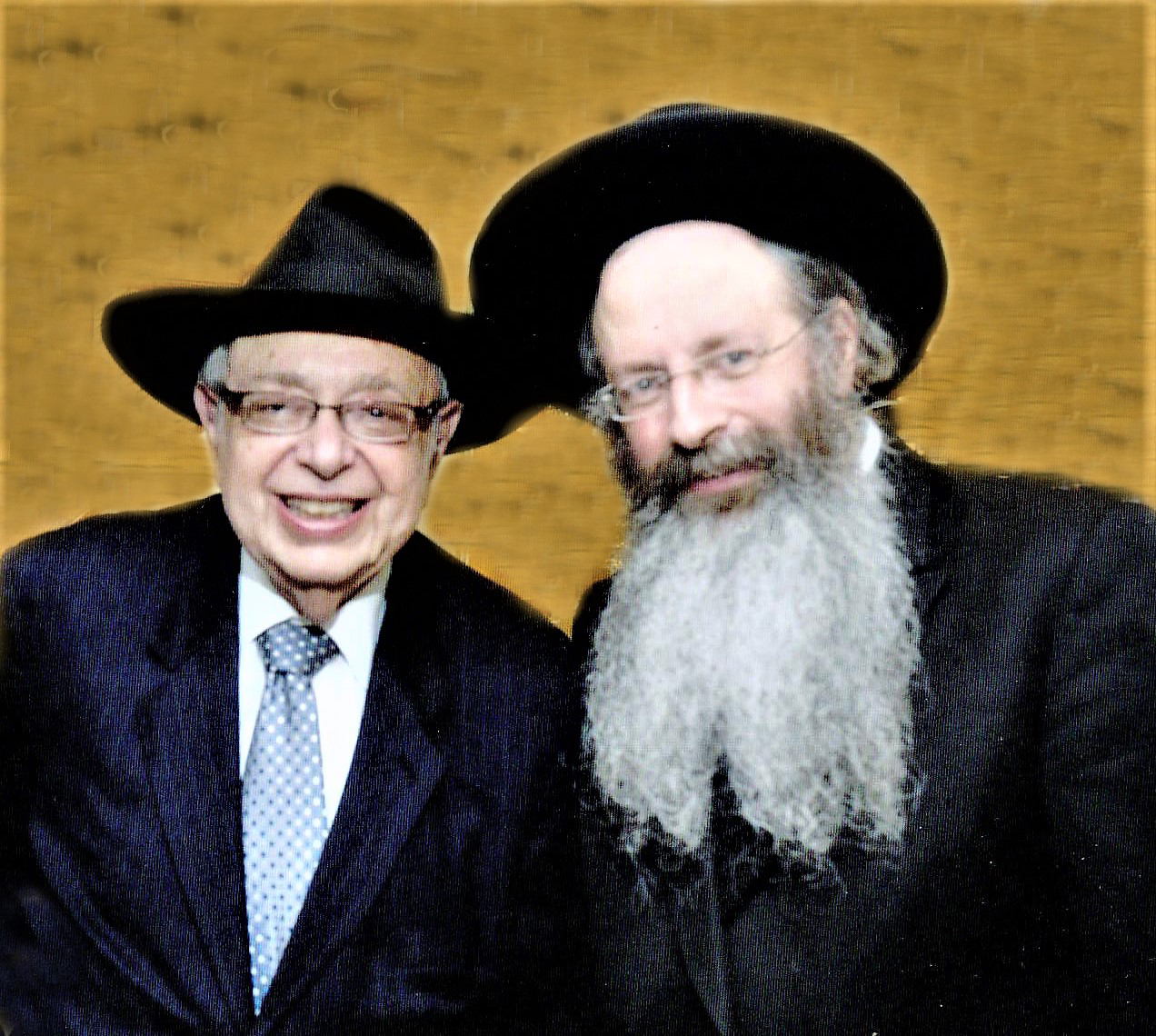
The Torah warns us not to go after “our hearts and our eyes,” but rather to look at the tzitzis.
But we have to know: the Torah is not telling us to ignore our heart.
Just the opposite.
“Hakodosh Baruch Hu liba boie … Hashem desires the heart!” (Sanhedrin 106b)
Hashem does not want us to ignore our heart, but rather to elevate it by subjugating “the desires and thoughts of the heart to His service….” (Seder hanachas Tefillin)
The other nations do not understand this, and, for that reason, their hearts are filled with violence and cruelty. But we are different.
This week we meet Avraham Avinu.
Our Father Avraham elevated service of the heart so it became the foundation of the world. “Only your forefathers did Hashem cherish to love them, and He chose their offspring after them –you! – from among all the peoples, as this day. You shall cut away the barrier of your heart and no longer stiffen your neck …. (Dvarim 10:16-17)
What did Hashem see in Avraham?
“Hashem … selected Avram, brought him out of Ur Kasdim and made his name Avraham. [He] found his heart faithful … and … sealed the covenant with him ….” (Nechemiah 9:7ff)
Hashem made a covenant with our Father Avraham because his heart was faithful!
The Ari Hakadosh said, “Every morning, before he starts praying, every Jew must say, ‘I am taking upon myself as a mitzvah to love every Jew as I love myself.” Indeed, there is a mitzvah to “love every Jew as yourself,” (Vayikra 19:18) about which Rabbi Akiva said, “This is a great principle of the Torah.”
I knew a Yid named Amos Bunim, may he rest in peace. He cried aloud during every davening, maariv, Shacharis and mincha. He felt the words in his heart. He knew that he was davening for his life.
We don’t even realize the dangers that surround us. Rabbi Matisyahu Solomon Shlita”h once said that, if a Jew returns from the street alive, it is a major miracle. Hashem is saving our lives every minute and we do not realize!
Every time we say “asher yatzar” we are acknowledging that Hashem saved our life!
Every time that we make a bracha on food, we are acknowledging that Hashem is keeping us alive!
“Anyone who does not mourn for Yerushalayim will not witness her joy [at the Redemption].” (Taanis 30b)
Avraham Avinu was the paragon of chessed, and chessed cannot exist unless one feels for another Jew. “Olam chessed yibonei … the world is built on kindness.” (Tehillim 89)
I believe that, if we don’t feel the words, then our davening is deficient.
If we survive this tumultuous path to Moshiach, it will only be because we have cried out to the Master of the Universe to save us the way our ancestors cried out in Mitzraim.
The greatest men in history knew how to cry.
“Then Yosef … wanted to weep, so he went into the room and wept there.” (Beraishis 43:30) Dovid ha Melech said, “Every night I drench my bed; with tears I soak my couch….” (Tehillim 6) “Al naharos Bavel … by the Rivers of Bavel, there we sat and also wept when we remembered Tzion….” (Tehillim 137)
“Even though the Gates of Prayer have been locked, the Gates of Tears have not been locked.” (Berachos 32b) If our tefillos are not getting through, maybe it is because we have forgotten how to cry. Please forgive me, my friends, but I see people rush through davening so they can open a sefer.
But why did they rush through davening? Hashem wants the heart.
“Hashem said to Shmuel, ‘Do not look at his appearance or at his tall stature, for I have rejected him. For it is not as man sees – man sees what his eyes behold, but Hashem sees into the heart.’”
Hashem is waiting for us to serve Him “b’chol levavcha … with all our heart” as our Father Avraham served Him, and through Avraham every bracha entered the world.
GLOSSARY
Asher Yatzar: Blessing said after using the bathroom
Avraham Avinu: Abraham, father of the Jewish People
Bavel: Babylon
Davening: Prayer
Maariv: The Evening Prayer service
Mincha: The Afternoon Prayer service
Sefer: A book of Torah or commentary
Shacharis: The Morning Prayer service
Tefillos: Prayers
Tzitzis: fringes worn by Jewish men on four-cornered garments